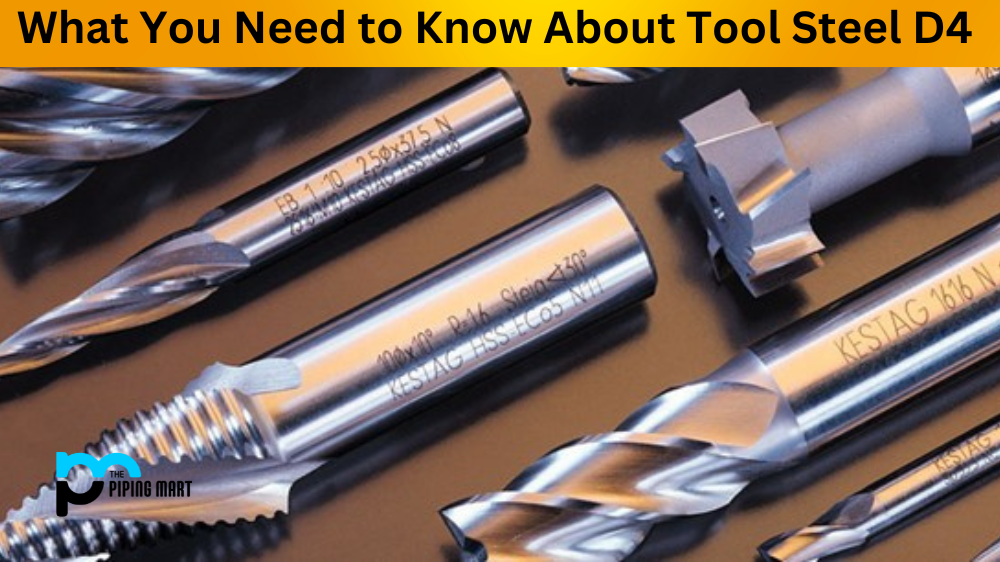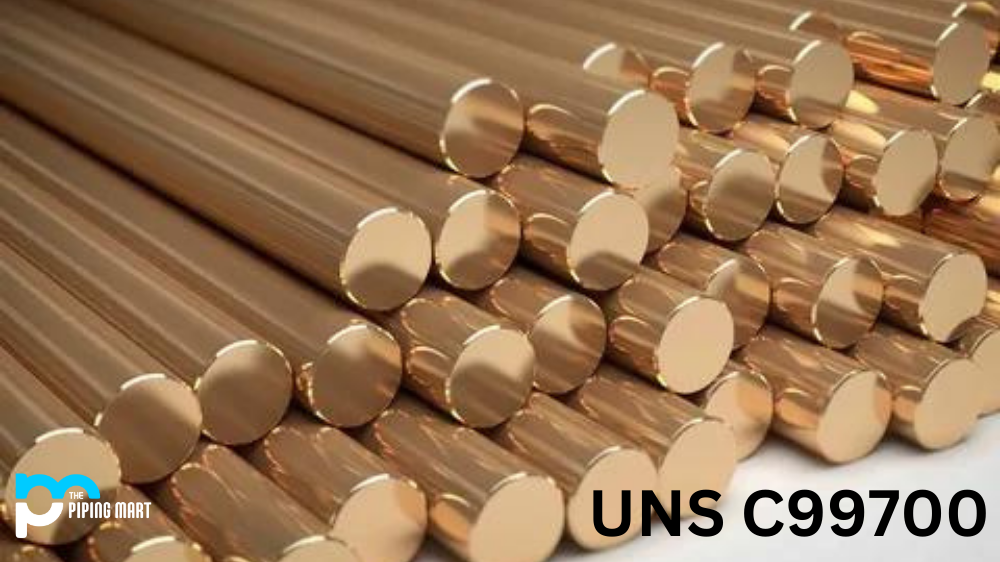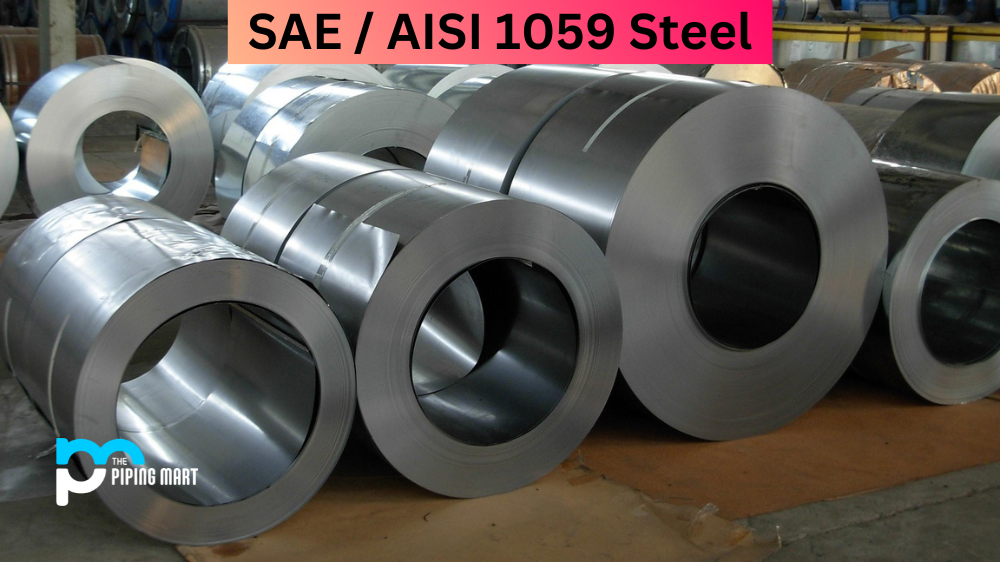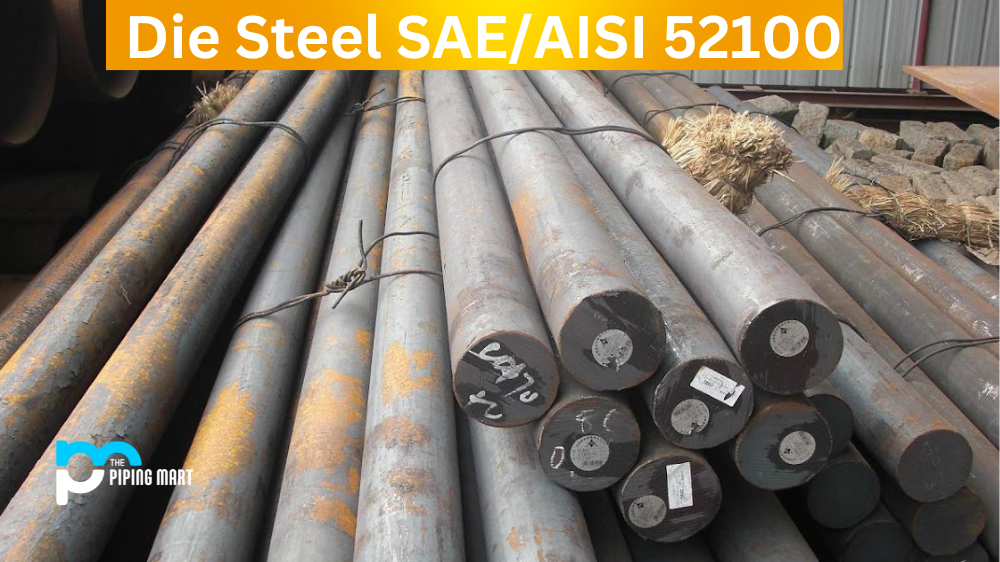Tool steel grades like D4 are often used in fabrication, tooling, and machinery manufacturing. Tool steel is a type of carbon steel alloy that is especially suited for machining because of its hardness, abrasion resistance, and heat treatment capabilities. D4 Tool Steel, also known as SAE-AISI D4 steel, is a popular material in manufacturing due to its impressive properties and versatile composition. With a designation of UNS T30404, this steel is a high-carbon, high-chromium, cold-work tool steel that boasts exceptional wear resistance, toughness, and dimensional stability. Its ability to retain its shape in extreme conditions has made it a go-to choice for applications such as stamping, cutting, and blanking dies. D4 Tool Steel is also valued for its resistance to softening at high temperatures, making it an ideal material for heat treatments. These qualities combined make D4 Tool Steel a critical component in the success of various industries, including aerospace, automotive, and manufacturing. In this blog post, we’ll be focusing on UNS T30404 and its uses, corrosion resistance, heat resistance, and machining capabilities.
What Forms of D4 Tool Steel is Available at Piping Mart?
- Nut
- Bar
- Bolt
- Pipe
- Screw
- Tubing
- Valves
- Washers
- Flanges
- Fasteners
- Electrodes
- Stud Bolts
- Sheet Plates
- Pipe Fittings
- Forged Fitting
- Instrumentation Fittings
D4 Tool Steel Composition
| Element | Content (%) |
|---|---|
| C | 2.05 – 2.40 |
| Mn | 0.60 |
| Si | 0.60 |
| Cr | 11.00 – 13.00 |
| Ni | 0.30 |
| Mo | 0.70-1.20 |
| V | 1.00 |
| P | 0.03 |
| S | 0.03 |
| Cu | 0.25 |
D4 Tool Steel Physical Properties
| Physical Properties | Metric | Imperial |
|---|---|---|
| Density | 7.7 x 1000 kg/m3 | 0.278 lb/in3 |
D4 Tool Steel Mechanical Properties
| Mechanical Properties | Metric | Imperial |
|---|---|---|
| Poisson’s ratio | 0.27-0.30 | 0.27-0.30 |
| Elastic modulus | 190-210 GPa | 27557-30457 ksi |
D4 Tool Steel Thermal Properties
| Properties | Conditions | ||
|---|---|---|---|
| T (°C) | Treatment | ||
| Thermal expansion | 12.4 x 10-6/ºC | 20-100 | – |
D4 Tool Steel Equivalents
- ASTM A681
- FED QQ-T-570
- UNS T30404
D4 Tool Steel Uses
D4 Tool Steel is a versatile grade with excellent wear resistance and atmospheric corrosion resistance properties. It has good hardenability and can be hardened in the air up to a Rockwell C hardness of 62. It can also be quenched in oil, but the process is lengthy and requires careful temperature control. It has superior impact strength compared to other air-hardening steels like W2 or O1 and can be used for a variety of applications such as knives, shears, punches or dies.
D4 Tool Steel Uses in Industries
Automotive Industry
D4 tool steel is commonly used in the automotive industry for components such as gears, shafts, and bearings. Its high strength and wear resistance make it ideal for these applications, as it can withstand vehicles’ heavy loads and friction.
Aerospace Industry
The aerospace industry also utilizes D4 tool steel for its strength and toughness. It is commonly used in aircraft landing gear and engine components, where reliability and performance are crucial.
Oil and Gas Industry
D4 tool steel is often used to manufacture drill bits in the oil and gas industry due to its high hardness and abrasion resistance. It can withstand harsh drilling conditions through rock formations without losing its sharpness.
Medical Industry
D4 tool steel’s corrosion resistance suits medical instruments such as surgical blades, dental tools, and orthopedic implants. Its high strength also makes these instruments thinner and more precise.
D4 Tool Steel Corrosion Resistance
Tool Steel D4 has an impressive corrosion resistance rating when compared to other steels. Its chromium content makes it resistant to most acids except hydrochloric acid at any concentration, which will cause pitting or etching of the surface if not properly protected with a coating or surface finish. Additionally, it has excellent oxidation resistance and will not rust easily when exposed to water or moisture for extended periods of time. The addition of vanadium further enhances its corrosion-resistant characteristics making it ideal for use in marine environments where saltwater exposure is common.
D4 Tool Steel Heat Resistance
Tool Steel D4 is capable of withstanding high temperatures without losing its mechanical properties due to its high chromium content, which provides excellent oxidation protection against scaling at elevated temperatures. Additionally, the addition of molybdenum adds extra protection against thermal shock up to approximately 1100℃ (2012°F). However, prolonged exposure to temperatures above 600℃ (1112°F) should be avoided as this could lead to embrittlement over time due to grain growth caused by the formation of carbide networks within the microstructure, which would reduce the toughness and impact strength significantly.
D4 Tool Steel Heat Treatment
Tool Steel D4 must be heated slowly through a range between 870℃ (1598°F) – 930℃ (1706°F). Once it reaches this temperature range, it can then be quenched either in oil or air, depending on the desired hardness required for your specific application requirements. It should then be tempered at 150-200℃(302-392°F) for two hours before being allowed to cool naturally so as not to risk cracking from quench cracking during cooling from too rapid a cooling rate during tempering processes.
D4 Tool Steel Machining
Tool Steel D4 offers superior machinability compared to other steels due to its combination of low carbon content along with added manganese and nickel content combined with low levels of sulfur, which help reduce cutting forces when machining operations are performed leading to improved tool life during operations such as drilling or turning operations on lathes etc. Additionally, it has good formability allowing parts made from this grade to easily conform to complex shapes without any significant issues arising from excessive ductility or spring back after forming operations have been carried out, making it ideal for use in applications where intricate shapes are required such as those found in aerospace components, etc.
Conclusion:
Tool Steel D4 offers an impressive blend of good wear resistance combined with superior corrosion protection, making it an ideal choice for many different applications ranging from knife blades right through aerospace components, thanks mainly due its unique combination of low carbon content along with additional elements including molybdenum which helps increase heat tolerance while still maintaining good machinability characteristics even after heat treatment processes have been completed successfully without any detrimental effects occurring upon final inspection following manufacture operations. Furthermore, its low cost relative to other grades means that this alloy continues to remain popular amongst manufacturers who require tougher yet still more affordable materials than those found in higher-end grades such as A2, H13, etc. All these factors make this grade one that is well worth considering for many different industrial applications regardless of whether you’re looking for something tough enough to withstand harsh climates or simply require something that offers superior machinability alongside great value, all rolled into one package.

A passionate metal industry expert and blogger. With over 5 years of experience in the field, Palak brings a wealth of knowledge and insight to her writing. Whether discussing the latest trends in the metal industry or sharing tips, she is dedicated to helping others succeed in the metal industry.




